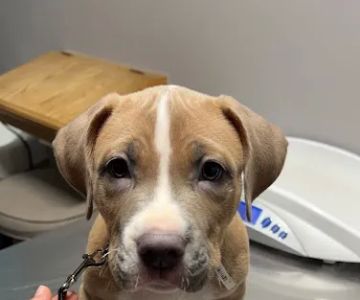How to Become a Veterinarian in Ontario: A Step-by-Step Guide
If you're passionate about animals and have always dreamt of becoming a veterinarian, you're not alone. Many people, like myself, are drawn to the veterinary profession because of the opportunity to care for animals and improve their lives. However, the path to becoming a veterinarian in Ontario requires dedication, hard work, and a well-planned education and career trajectory. In this guide, I’ll walk you through the key steps on how to become a veterinarian in Ontario, providing detailed insights based on both personal experiences and expert advice.
- 1. Understanding the Role of a Veterinarian
- 2. Meeting the Educational Requirements
- 3. Gaining Practical Experience
- 4. Applying to Veterinary Schools in Ontario
- 5. Completing the Veterinary Program
- 6. Obtaining Licensure and Continuing Education
1. Understanding the Role of a Veterinarian
Before diving into the specific steps to become a veterinarian in Ontario, it's important to first understand what the profession entails. Veterinarians are responsible for diagnosing, treating, and preventing illnesses and injuries in animals, whether they are pets, livestock, or wildlife. They may work in clinics, animal hospitals, farms, research labs, or even in conservation settings. I have always been fascinated by the variety of animals veterinarians work with, from domestic pets like dogs and cats to exotic species.
As a veterinarian, your role extends beyond medical care—you’ll often need to educate pet owners, provide emotional support, and even manage the business aspects of running a veterinary practice. It's a rewarding but challenging profession, requiring compassion, excellent communication skills, and a strong knowledge of science. This is why, before embarking on this career path, it’s important to ensure you’re fully prepared for the rigorous demands and responsibilities it entails.
2. Meeting the Educational Requirements
The journey to becoming a veterinarian in Ontario begins with obtaining the necessary education. Generally, aspiring veterinarians must complete a bachelor’s degree before applying to a veterinary school. The undergraduate degree should ideally be in a field like biology, animal science, or a related subject. I chose to pursue a degree in biology, which laid a solid foundation in the sciences, preparing me for the intense academic challenges of veterinary school.
During my undergraduate years, I focused on courses in biology, chemistry, physics, and mathematics—subjects that are essential for the veterinary profession. While a bachelor’s degree is a prerequisite, it’s not just about fulfilling requirements. Veterinary schools are highly competitive, and having a solid academic record is essential. You'll need to maintain strong grades and demonstrate proficiency in science and math.
3. Gaining Practical Experience
In addition to academic qualifications, veterinary schools in Ontario require applicants to have hands-on experience working with animals. This is an essential part of the admissions process and can set you apart from other candidates. I spent several summers volunteering at animal shelters, local clinics, and farms, which allowed me to interact with a wide range of animals and understand the realities of veterinary care.
Practical experience not only enhances your application but also gives you a clearer idea of what the work entails. During my time volunteering, I learned to handle animals in a clinical setting, observed procedures, and gained insight into the daily responsibilities of a veterinarian. It’s important to demonstrate your commitment to animal welfare and showcase your ability to work with both animals and people.
4. Applying to Veterinary Schools in Ontario
Once you’ve completed your undergraduate degree and gained practical experience, the next step is applying to veterinary schools in Ontario. There are two primary institutions in Ontario that offer veterinary programs: the Ontario Veterinary College (OVC) at the University of Guelph and the University of Toronto's veterinary program. Both schools are renowned for their rigorous programs and high standards.
For me, applying to veterinary schools was both exciting and nerve-wracking. The application process involves submitting your academic transcripts, standardized test scores (like the GRE), letters of recommendation, and a personal statement outlining why you want to become a veterinarian. The competition is tough, so it's essential to highlight your strengths and experiences in your application.
In addition to academic qualifications, veterinary schools will also assess your volunteer experience, leadership abilities, and passion for animal care. Keep in mind that getting into veterinary school is highly competitive, with many applicants vying for limited spots. However, if you’re dedicated and have demonstrated your commitment to animal care, your chances improve significantly.
5. Completing the Veterinary Program
After being accepted into a veterinary school, you’ll embark on an intense academic journey. Veterinary school in Ontario typically takes four years to complete, and the curriculum covers a wide range of subjects, including anatomy, pharmacology, surgery, animal behavior, and pathology. During this time, I found that the workload was demanding, but the skills and knowledge I gained were incredibly rewarding.
In addition to classroom instruction, veterinary programs include clinical training where you work with real animals in a supervised setting. This hands-on experience is critical for honing your skills as a future veterinarian. As part of my program, I participated in rotations through different specialties, such as emergency care, surgery, and internal medicine, which provided me with a comprehensive understanding of veterinary practice.
6. Obtaining Licensure and Continuing Education
After completing your veterinary program, the final step is obtaining licensure to practice as a veterinarian in Ontario. To do this, you must pass the North American Veterinary Licensing Examination (NAVLE), a comprehensive exam that tests your knowledge of veterinary medicine. Additionally, you’ll need to apply for licensure through the Ontario College of Veterinarians (OCV), the governing body for the veterinary profession in Ontario.
Once licensed, the learning doesn’t stop. Veterinary medicine is constantly evolving, with new treatments, technologies, and best practices emerging regularly. To stay current, veterinarians are required to participate in continuing education throughout their careers. I found that attending conferences, workshops, and online courses allowed me to keep my skills up-to-date and provide the best care for my patients.
Becoming a veterinarian in Ontario requires years of hard work and dedication, but the rewards of helping animals and making a difference in their lives are well worth it. If you’re ready to embark on this challenging yet fulfilling career path, take the necessary steps, and stay committed to your goals. Want to learn more about veterinary programs or need advice on your next steps? Visit [Hidden Brook Veterinary] for expert guidance and more resources to help you succeed in this rewarding career.











